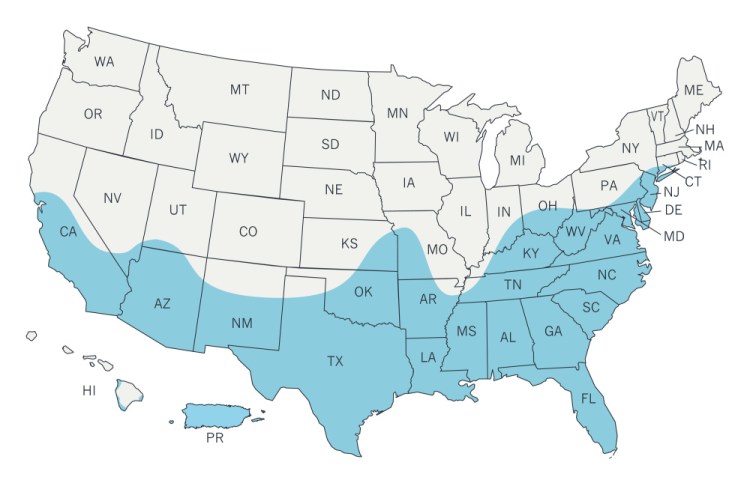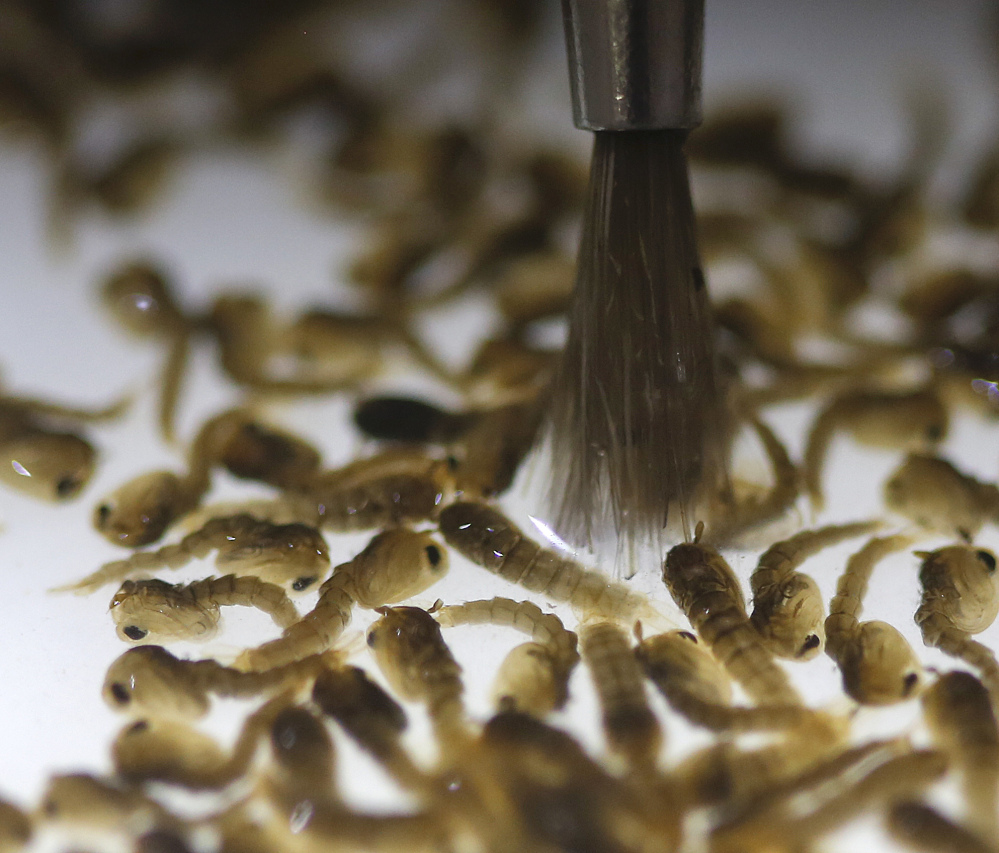WASHINGTON — The Centers for Disease Control and Prevention on Friday said that is monitoring 279 pregnant women with likely Zika virus infections across U.S. states and territories. The largest number of cases by far are in Puerto Rico, where officials said they are keeping tabs on 122 pregnant women likely infected by the virus. They also are monitoring 157 other pregnant women across the United States.
“One challenge of this Zika virus outbreak is is the lack of understanding of the magnitude of risk and the spectrum of outcomes associated with Zika virus infection during pregnancy,” agency researchers wrote in a report published Friday. “Findings from these U.S. surveillance systems are expected to improve understanding of Zika virus infection during pregnancy, enhance risk assessment and counseling of pregnant women and families, advance clinical care, and assist states and territories to anticipate and plan needed resources and increase prevention efforts.”
CDC researchers did not include details about the outcomes of any of the pregnancies they currently are monitoring, saying that information “will be shared in future reports.” They also said the agency will begin posting a weekly update on the number of pregnant women with likely Zika infections that health officials are monitoring.
Researchers have said there is little doubt that the mosquito-borne virus can cause pregnancy complications and severe fetal abnormalities, as well as some neurological problems in adults. The most pronounced is microcephaly, a rare condition marked by an abnormally small head and a lack of brain development. A wave of babies with the devastating condition already have been born in countries such as Columbia and Brazil, where the current Zika outbreak began last year.
The disease has since spread to dozens of countries and island territories, primarily in South and Central America, as well as the Caribbean. That has prompted the CDC to urge pregnant women in particular to avoid traveling to Zika-affected areas.
Earlier this month, Puerto Rico reported its first Zika-related microcephaly case amid an outbreak of the mosquito-borne virus. Health Secretary Ana Rius told reporters in San Juan that a fetus turned over to U.S. health officials had severe microcephaly and tested positive for Zika. She declined to say whether the woman involved had an abortion or miscarried. A health department statement referred to a male fetus that showed “severe microcephaly and calcifications in the brain accompanied by Zika-wide presence of the virus.” It said the case was detected early through “robust surveillance systems.” The abnormalities were detected via ultrasound, the department said.
In late February, the CDC reported that at least two pregnant women in the United States infected with the Zika virus had chosen to have abortions, while two others have suffered miscarriages. One woman gave birth to an infant with serious birth defects, while two others delivered healthy infants. Around that same time, the agency was developing two surveillance systems in conjunction with state and local health officials — one to monitor people specifically in Puerto Rico, where the virus has been spreading rapidly, and another to monitor cases in the rest of the United States.
With rising temperatures in the weeks ahead, U.S. health officials have been warning about expected local outbreaks of the virus in parts of the country, particularly in the South and the Southwest. Those regions are home to the Aedes aegypti mosquito, the primary vector for the virus.
Already, countries such as El Salvador and Jamaica have urged women to postpone pregnancy. The CDC has maintained an ever-growing list of Zika-affected countries that is has urged U.S. women who are pregnant to avoid.
President Barack Obama on Friday was scheduled to receive an Oval Office briefing late Friday morning about the country’s Zika planning from CDC director Tom Frieden, Health and Human Services Secretary Sylvia Burwell and Anthony Fauci, director of the National Institute of Allergy and Infectious Diseases.
Friday’s news also comes amid the latest push in Congress for more resources to prepare for and combat the spread of Zika domestically. On Thursday, the Senate approved $1.1 billion in emergency funding, substantially more than the $622 million funding package the House approved a day earlier, in part financed by using money set aside for Ebola.
The White House, which in February requested $1.9 billion for its Zika response, called the House’s measure “woefully inadequate.”
As of this week, there were 544 reported cases of Zika in the United States, nearly all of them involving people who had traveled to countries already plagued by the virus. A handful off infections have been sexually transmitted, but none have yet been acquired from mosquitoes in this country. In addition, there have been more than 800 Zika cases in U.S. territories, the vast majority of those in Puerto Rico, where local transmissions through mosquitoes have been common.
Send questions/comments to the editors.




Success. Please wait for the page to reload. If the page does not reload within 5 seconds, please refresh the page.
Enter your email and password to access comments.
Hi, to comment on stories you must . This profile is in addition to your subscription and website login.
Already have a commenting profile? .
Invalid username/password.
Please check your email to confirm and complete your registration.
Only subscribers are eligible to post comments. Please subscribe or login first for digital access. Here’s why.
Use the form below to reset your password. When you've submitted your account email, we will send an email with a reset code.